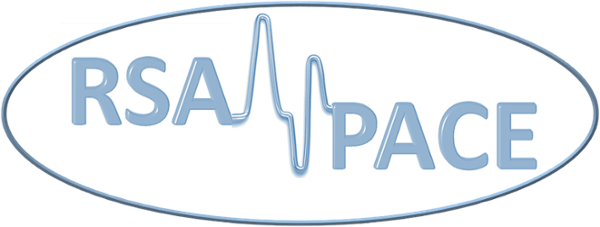RSA-PACE
 Lay summary
Lay summary
Respiratory sinus arrhythmia (RSA) is a normal variation in the heart rate; increasing when you breathe in and slowing down when you breathe out. RSA is reduced in older people and long-term conditions like heart failure. This study looks at whether we can use a temporary pacemaker to restore RSA in humans safely, and whether this can improve heart function in patients with heart failure. This is a clinical investigation of a brand new prototype medical device.
This study includes patients with heart failure who are having a cardiac operation. We will compare the effect of having the new RSA-type pacing against having standard cardiac pacing (at a fixed heart rate). Patients will be randomly allocated to one of these treatments and will have their heart paced for several days while they are in hospital recovering from their operation. We will test whether the new device can deliver the RSA-type pacing to the heart, and whether it is as safe as ordinary pacing. We will also test whether it improves the function of the heart over several days, and if any improvements fade away a few days after the pacing has stopped.
Study Details
-
Full title of clinical trial: Respiratory sinus arrhythmia pacing post-CABG surgery in patients with HFrEF (RSA-PACE)
-
Study design: RSA-PACE is a first-in-human, multi-centre, randomised controlled trial
-
Chief Investigator: Prof Zaheer Yousef, Consultant Cardiologist, Cardiff & Vale University Health Board
-
Trial Manager: Dr Susan Peirce, CEDAR, Cardiff & Vale UHB
-
Sponsor: Ceryx Medical
-
REC reference: 24/YH/0110
-
IRAS: 315761
-
Funding: Commerical
-
Trial registration: NCT06359938
-
Status: Recruiting
Study documents
Follow this LINK for study documents and information for sites involved in recruitment